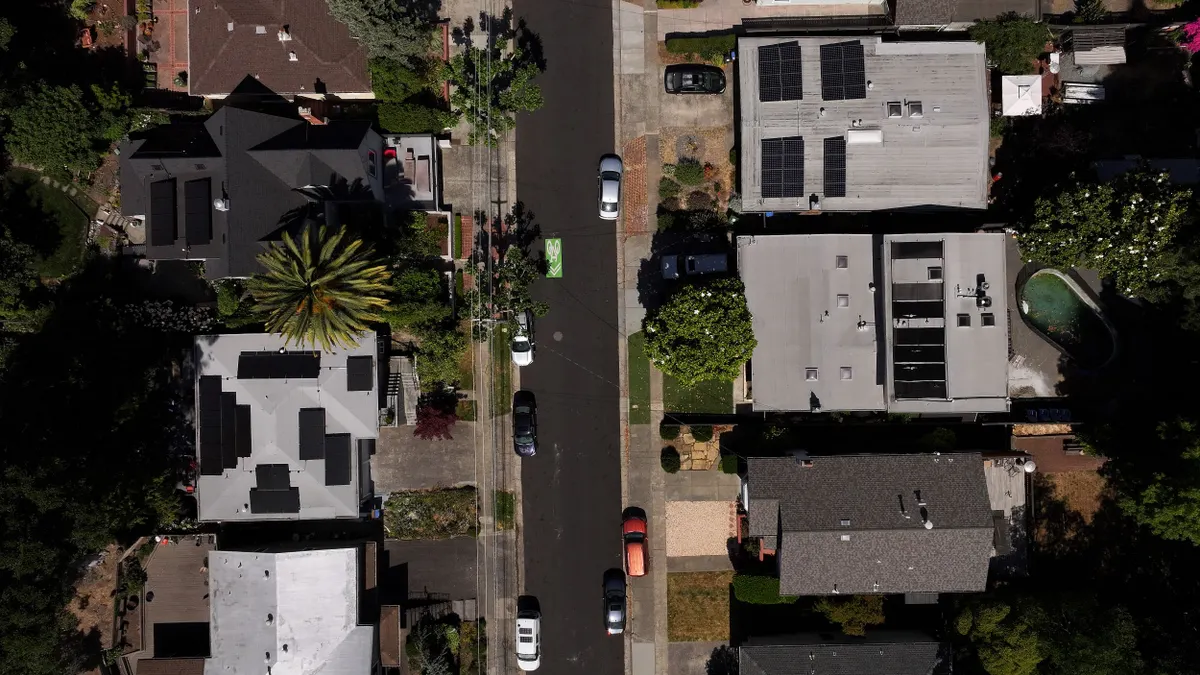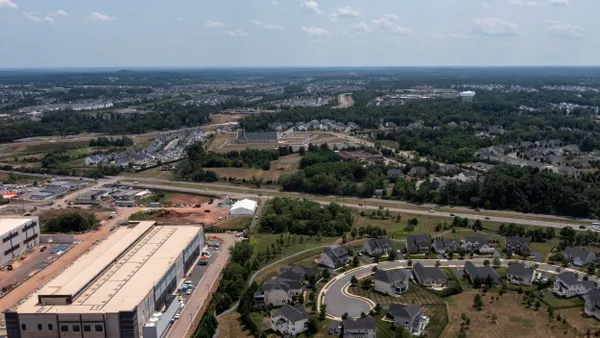Editor’s note: This is the fifth piece in a series on what utilities and others are doing to increase equity in the U.S. power system, the challenges they face, and what more consumer advocates say needs to be done.
City residents who could be most impacted by decarbonization policies may not be part of the conversation as they’re developed. The creators of the Equitable Building Electrification Fund believe that decision-making power in the energy transition needs to shift.
The fund was formed by environmental justice organizers and energy affordability advocates and is backed by philanthropies, including the cities-focused Kresge Foundation. It awards money to community-based organizations working to support people impacted by pollution and for whom the cost and process of electrifying are burdensome. While recent federal actions like the Inflation Reduction Act added some financial breaks and incentives for property owners to decarbonize their homes, barriers remain.
Jackson Koeppel, a member of the fund’s governance assembly, said it’s “filling the gap” between implementing emerging technologies and the communities most in need of their benefits.
The fund’s model is to put decision-making power in the hands of frontline communities, Koeppel said, “because the design of the actual solutions and implementation is going to be most effective when the communities where the implementation is supposed to happen are actually at the table.” Local governments often create decarbonization policies without enough attention to implementation, particularly “how it will be implemented in an equitable manner,” Koeppel said.
Some cities have recently taken steps to better ensure communities are participants and beneficiaries as they develop different policy tools to reduce reliance on natural gas in future or existing buildings. Earlier this month, a Chicago working group shared 26 recommendations, including creating a community accountability board. And in September, Los Angeles’ Climate Emergency Mobilization Office released a report with equity-focused policy recommendations for building decarbonization based on community engagement.
One collaborator on the LA report was Physicians for Social Responsibility Los Angeles, one of the fund’s early beneficiaries. The group of healthcare professionals is working to ensure that forthcoming local and state decarbonization policies will benefit all communities.
“We're co-designing policies with frontline communities, with low-wealth communities, that have often been not invited and left out of the conversation,” said Maro Kakoussian, climate justice organizing manager at PSR-LA.
The primary reason they’re working on building decarbonization is climate change — buildings are the source of 43% of the city’s total greenhouse gas emissions. But PSR-LA is also focused on the public health impact of gas-related indoor air pollution. Everyone has a right to “breathe clean air and live in healthy and safe homes and neighborhoods and communities,” she said.
“I feel like we're still at the very beginning stages of really being able to see what this model looks like for the city of LA,” said Kakoussian. After sharing those recent recommendations, work going forward will involve continuing to ingrain community voices in the policy-writing and implementation phases.
While the fund is ultimately seeking millions more from philanthropic partners to help advance these efforts, Koeppel hopes that it can serve as a model for the public and philanthropic sectors to follow the lead of frontline communities. Koeppel, based in the Detroit area, also noted that despite policy action in several major cities, the reality is that utilities are lobbying against decarbonization legislation in many others. The fund aims to support groups along the policymaking spectrum, and areas with less developed electrification approaches may actually be an opportunity to create more equitable, inclusive policies from the ground up.
















